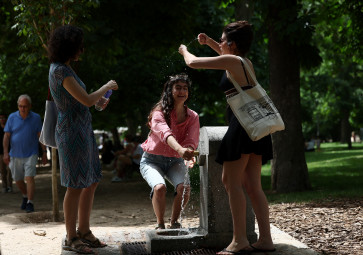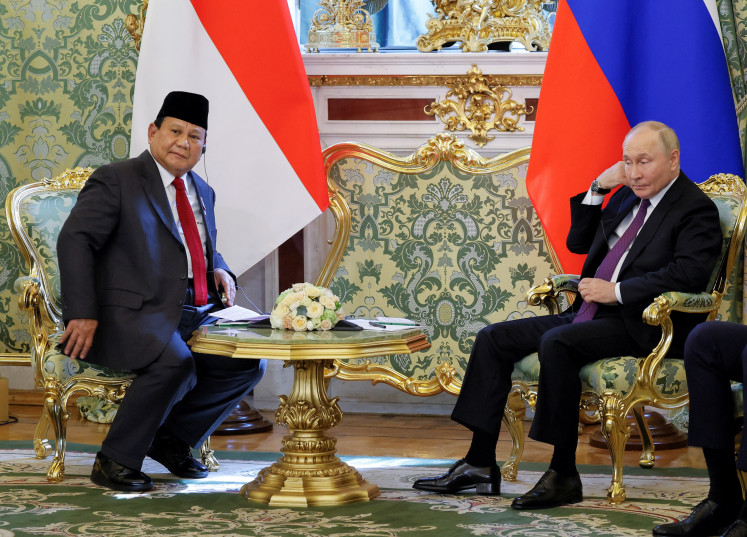Beyond the page: Boosting child literacy takes more than books alone
Change text size
Gift Premium Articles
to Anyone
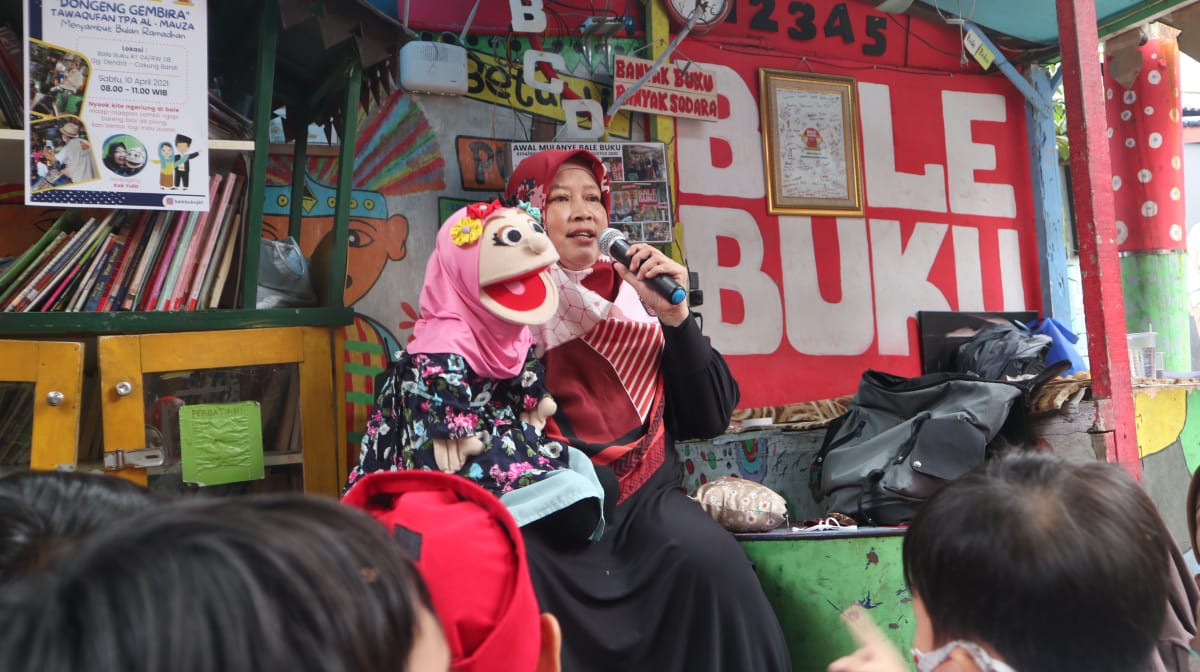
W
hen Jakarta was hit by the COVID-19 pandemic, child literacy became a major concern, as young students lost the opportunity to learn alongside peers and were made to rely on digital devices for their education.
On Nov. 8, Jakarta was named a City of Literature by UNESCO, alongside 40 other cities from 29 countries, earning a seat in the United Nations agency's Creative Cities Network.
The city was chosen for its literary history and potential to contribute to the field of literature. In the past few years, Jakarta has seen a rise in its reading culture. In 2020, 19 percent of publishers in Indonesia were based in Jakarta, and 14,906 of them were ISBN-registered, meaning they were part of an international publication indexing standard. The city also accounts for about 25 percent of the national digital collection.
Jakarta is home to several book events as well, such as the International Book Fair (IIBF), the Jakarta International Literary Festival (JILF) and Jakarta Content Week (Jaktent).
The city administration has devised various programs to improve literacy and the love of reading across the metropolitan area. One is called Gerakan Baca Jakarta (Jakarta Reading Movement), a collaboration involving the Jakarta Archive and Library Agency and library branches in Jakarta.
In 2021, the East Jakarta Archive and Library Agency began working with Bale Buku Jakarta (Jakarta Book Hall), an organization that focuses on creating spaces for children to read, learn and play. Hundreds of books of different genres were made available for children, young adults and parents.
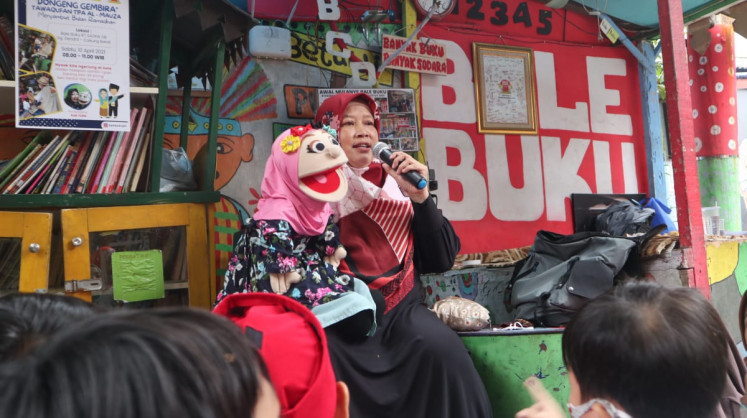
"Bale Buku can be defined as small libraries in various corners of Jakarta," said Ayi Endar, Bale Buku’s secretary. "Children can read books, do their homework, draw, paint, play traditional games and much more."
Bale Buku also teaches Betawi culture through storytelling, traditional dance and painting, and everyone is welcome to participate. The organization has eight locations, open daily, in East Jakarta, with the latest in Kramat Jati. After East Jakarta is sufficiently covered, Bale Buku and the East Jakarta administration plan to expand the initiative throughout the city to provide more children with free books and learning materials.
Bale Buku was established in August 2020 by Ayi and other young people in West Cakung. They were concerned about the impact of the COVID-19 pandemic, which had forced children to stay inside and spend much more time on their phones and laptops.
"We don't want children to stay glued to their screens. We want them to explore their skills by receiving literacy education, which is important for their growth and development," said Ayi.
Woelan Handadari, a senior lecturer at Airlangga University who has specialized in child psychology since 1986, stressed the importance of literacy education for children, especially at the crucial ages of 2 to 6 years old.
"Literacy can help stimulate the growth of cognitive and motor skills in a child. It is beyond simply reading a book," said Woelan, who has been an active child counselor since 1976.
According to Woelan, literacy is one of five important skills young children should develop. The others are social, emotional, cognitive and language skills.
Children who fail to develop these skills can face difficulties in their daily lives, and literacy is increasingly important for interacting with peers because it is the foundation of internet-based communication and socialization.
Raising readers
Activities like reading together can develop trust between children and parents, according to Woelan. Parents need to be patient, as they play significant roles in their children’s reading development. If a child makes a mistake, it is best not to mock, discourage or laugh at them.
"If you don't have time on the weekdays to spend with your children because of work, [try] the weekend," Woelan advised.
Children who actively communicate with their parents as they read or learn are more likely to be independent and have fewer difficulties making decisions.
"I have seen parents leave their children on their own with a digital device so they can focus on working. This is wrong, as parents need to always be there to accompany their children," said Woelan.
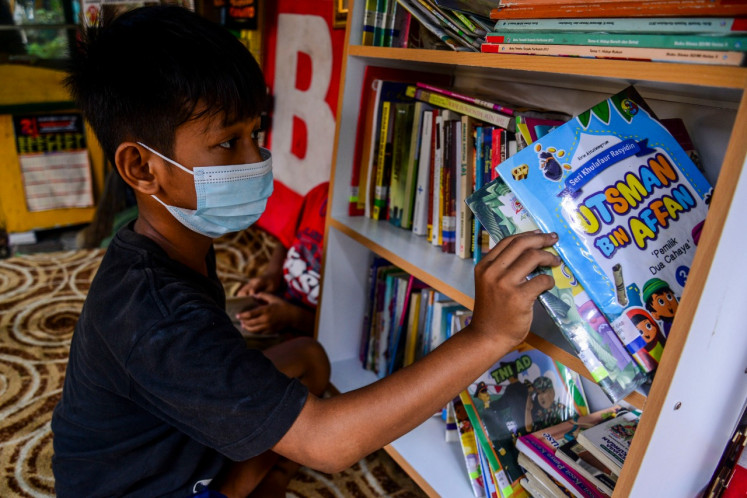
Keyko Sukmaditami, a 32-year-old entrepreneur from Jakarta, tries to make sure she spends enough time with Aira, her 7-year-old daughter. For the past six months, Keyko has been homeschooling her.
"I love reading children's books, and I want my child to love reading also. I started reading books to her when she was as young as 6 months old," said Keyko, who added that she was not keen on letting her child read online.
She said online content usually had more distractions, such as ads, unrelated pictures and audio, and that she preferred to have her daughter read printed books, so she could fully concentrate on making sense of the words.
"Hopefully, moving forward, access to books will be much easier," said Keyko, noting that reading materials could be prohibitively expensive for a number of Indonesian parents.
Nico Kamajaya, a 40-year-old entrepreneur with children aged five, nine and 11, takes his children to book stores from time to time so they can buy new books appropriate for their ages and reading levels. He has also enrolled them in English-language and mathematics courses.
At one's own pace
Keyko said she did not set specific development goals for her child – that she let Aira develop her interests and skills at her own pace while facilitating every step of her journey, such as finding books she liked.
Children’s book, game and picture preferences differ by age, development and personal taste.
"Some children prefer visually attractive books, some prefer more text, some prefer space, some prefer cars," said Woelan.
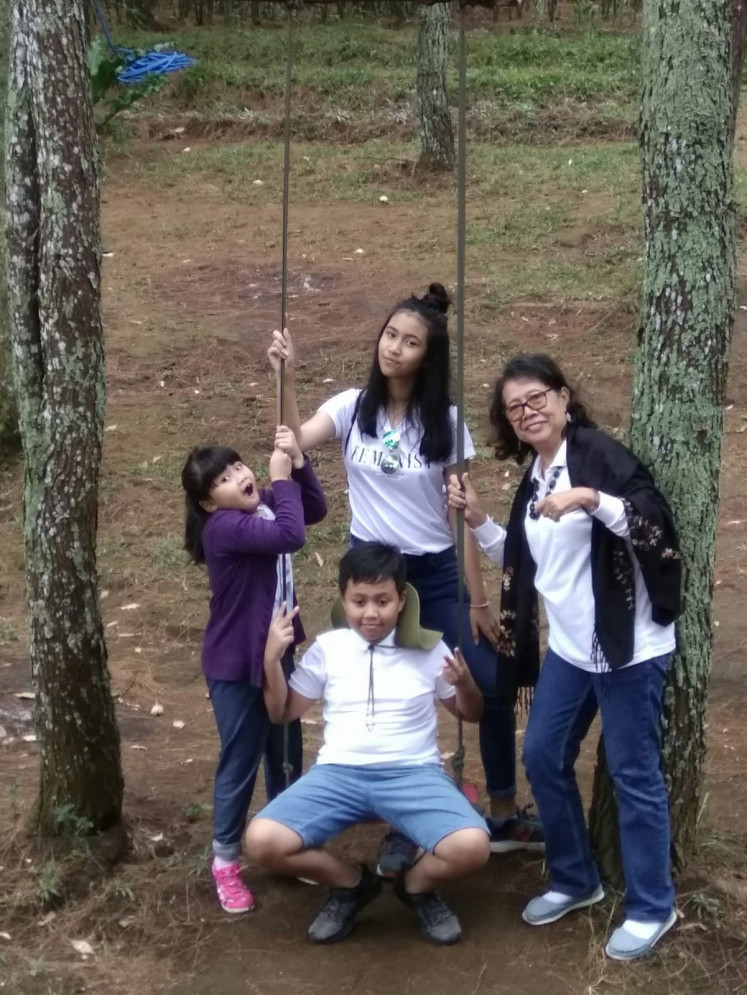
Nico's children have very different taste in books. His youngest child prefers books with fun pictures or pop-up books, while the older siblings like to read National Geographic or science books targeting children.
Children's interests can also change rapidly. Keyko said she had to account for her daughter's constantly shifting curiosity. One moment she might be interested in angler fish and other deep-sea creatures, the next she might be engrossed in maps and atlases.
When Ayra asks something Keyko is unsure of, she always responds, "Let's look it up together," to keep her child's curiosity engaged.
"Don't forget to say thank you, too," advised Keyko. "Children tend to turn to their parents for the truth, and they believe you know everything in the world. Make sure you let them know how grateful you are for that trust."
"A child who wants to read is a curious child. What parents should do is facilitate their curiosity and help it flourish," Keyko said.
ohmg


